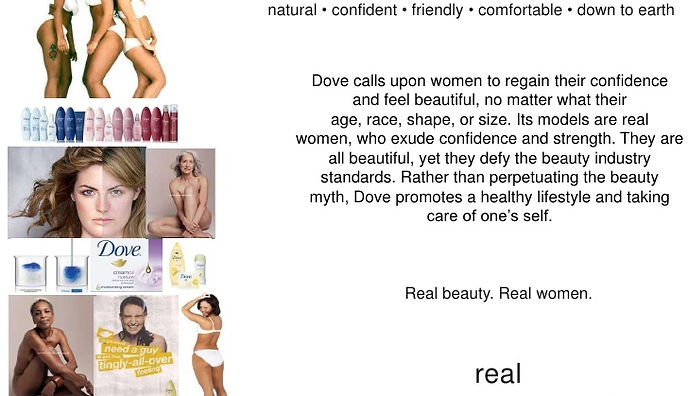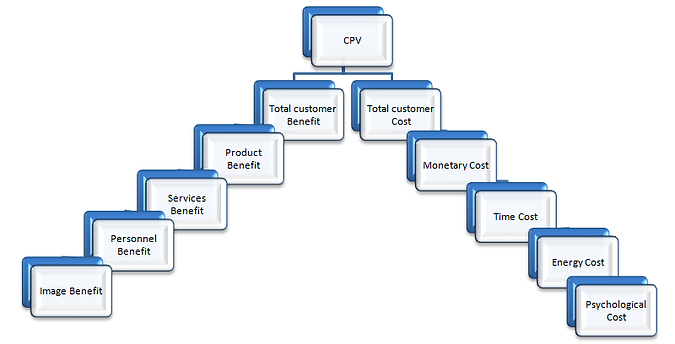
BRANDING
An Application of Unilever Brand Key Model - The Case of DOVE Product.
MBA Participants at Solvay Brussels School,
Ho Chi Minh, Vietnam
Kay De Vreese
Giang Nguyen
Thieu Nguyen
Tuan Nguyen
Value
Value in marketing, also known as customer-perceived value, is the difference between a prospective customer's evaluation of the benefits and costs of one product when compared with others. Value may also be expressed as a straightforward relationship between perceived benefits and perceived costs:
Value = Benefits / Cost.
The four types of value include: functional value, monetary value, social value, and psychological value. The sources of value are not equally important to all consumers. How important a value is, depends on the consumer and the purchase. Values should always be defined through the "eyes" of the consumer.
-
Functional Value: This type of value is what an offer does, it's the solution an offer provides to the customer.
-
Monetary Value: This is where the function of the price paid is relative to an offerings perceived worth. This value invites a trade-off between other values and monetary costs.
-
Social Value: The extent to which owning a product or engaging in a service allows the consumer to connect with others.
-
Psychological Value: The extent to which a product allows consumers to express themselves or feel better.
CUSTOMER PERCEIVED VALUE OF DOVE


The manner in which the product can add perceived value will determine what the customer is willing to pay and whether this will add to customer satisfaction.
-
After the ‘campaign for real beauty’ the brand lowered its prices which had somewhat become reasonable.
-
Recommended by dermatologists.
-
Dove experiences high brand awareness among the teenage bracket. Positive feedback by adult group and teenagers.
-
Dove bar with high product value, affordable price, psychological cost and good reviews from the users have been able to capture the market in the best possible manner.
Personality
Brand personality is the way a brand speaks and behaves. It means assigning human personality traits/characteristics to a brand so as to achieve differentiation. These characteristics signify brand behaviour through both individuals representing the brand (i.e. it’s employees) as well as through advertising, packaging, etc. When brand image or brand identity is expressed in terms of human traits, it is called brand personality. For instance, Infosys represents uniqueness, value, and intellectualism.
Brand personality is the personification of brand. A brand is expressed either as a personality who embodies these personality traits (For instance John Abraham and Castrol,) or distinct personality traits (For instance - Dove as confident,feminist and optimist; Hewlett Packard brand represents accomplishment, competency and influence). Brand personality is the result of all the consumer’s experiences with the brand. It is unique and long lasting.
Brand personality must be differentiated from brand image, in sense that, while brand image denote the tangible (physical and functional) benefits and attributes of a brand, brand personality indicates emotional associations of the brand. If brand image is comprehensive brand according to consumers’ opinion, brand personality is that aspect of comprehensive brand which generates its emotional character and associations in consumers’ mind.
Brand personality develops brand equity. It sets the brand attitude. It is a key input into the look and feel of any communication or marketing activity by the brand. It helps in gaining thorough knowledge of customers feelings about the brand. Brand personality differentiates among brands specifically when they are alike in many attributes. For instance - Sony versus Panasonic. Brand personality is used to make the brand strategy lively, i.e., to implement brand strategy. Brand personality indicates the kind of relationship a customer has with the brand. It is a means by which a customer communicates his own identity.
Brand personality and celebrity should supplement each other. Trustworthy celebrity ensures immediate awareness, acceptability and optimism towards the brand. This will influence consumers’ purchase decision and also create brand loyalty. For instance - Roger Federer is brand ambassador for Rolex, luxury watch.
Brand personality not only includes the personality features/characteristics, but also the demographic features like age, gender or class and psychographic features. Personality traits are what the brand exists for.

CUSTOMER PERCEIVED VALUE OF DOVE


Dove is a commitment to the feminine, bright and optimistic spirit of love of life. When using these products, Dove gives women a feeling of confidence in myself
Dove
-
Confident, optimistic and feminine